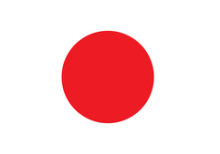Physician and humanitarian groups worldwide are reaching out to help Japan in the aftermath of the 9.0 magnitude earthquake.
“The World Health Organization extends it sympathies to the people and Government of Japan and stands ready to provide any necessary support to the victims of this terrible tragedy,” Dr. Shin Young-soo, Regional Director for the Western Pacific, said in a statement.
The WHO reports:
- 1 million homes without water.
- 3.2 million people running out of gas.
- About 2.5 million Japanese households, just over 4%, have no electricity.
As officials struggle to prevent full meltdowns at nuclear reactors damaged by the quake in the country's northeastern region, Japan's government is asking people living within 20 km of the Fukushima Daiichi nuclear power plant to evacuate, and those between 20 km and 30 km are asked to stay indoors, WHO reports.
Several employees are suffering acute radiation sickness, according to media reports.
The New York Times reports that that the level of radiation outside the facilities is "twice the level Japan considers safe."
Officials are flooding the cores with seawater to try to cool them. The resulting steam is not toxic enough to harm humans, they said. Release of the radioactive steam could continue for months, international experts say.
The Radiation Emergency Medical Preparedness and Assistance Network (REMPAN) is on standby to assist if asked by the Japanese government.
REMPAN is made up of "40 medical and research institutions specializing in diagnosis, monitoring, dosimetry, treatment, and long-term follow-up of radiation injuries, acute radiation syndrome, internal contamination and other radio-pathology," according to the WHO website.
It's calling is to provide emergency medical and public health assistance to people over-exposed to radiation. It also facilitates a long-term care and follow-up of radiation accident victims and conducts research in radiation emergency medicine, the agency said.
The American College of Physicians has made available resources on the consequences of radiation exposure and clinical guidelines on the management of acute radiation syndrome.
Doctors Without Borders/Médecins Sans Frontières (MSF) has sent hands to the region and reports that road access to hard-hit areas has improved. A team of 10 divided into three teams is conducting mobile clinics and assessments in devastated Miyagi prefecture, according to a field report posted March 14.
"In one area around Minamisanriku, in northern Miyagi, we were told by officials there were 9,200 people in 20 evacuation centers who needed water, non-food items and medical attention,” said Mikiko Dotsu, the coordinator of the team. More personnel are at the ready in Japan and abroad to provide additional care in Miyagi, the report said.
Doctors Without Borders "continues to monitor the situation around Fukushima nuclear power plants. If there is a serious nuclear incident, it is only the Japanese government that will be in a position to react," the group said.
The organization is "drawing on unrestricted donations given to MSF to fund our efforts, and we are not accepting donations specifically earmarked for recovery efforts in Japan."
The Doctors Without Borders/MSF website offers multiple ways to donate.


